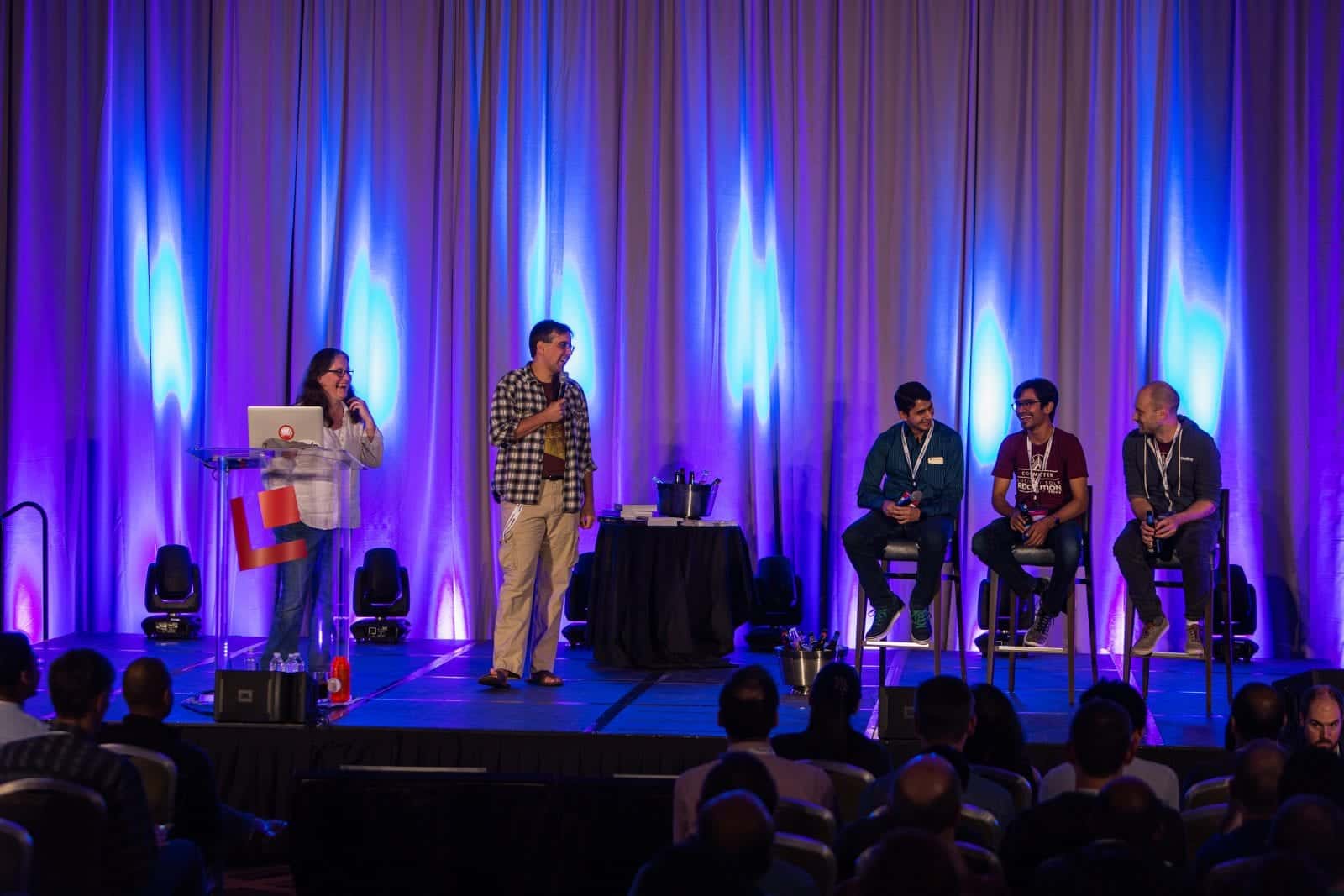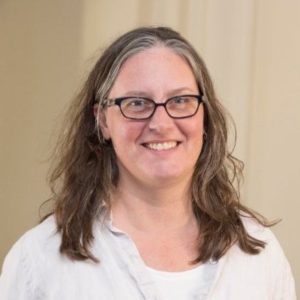From Committer to Chairperson: Meet Cassandra Targett, the First Woman Chair of the Lucene PMC

This year marks the 10th anniversary for Cassandra Targett here at Lucidworks. That decade saw many “firsts” for her: The first woman committer in the Lucene/Solr project in 2013, six years with the Apache Software Foundation (ASF), and capped off most recently in being named the first woman Chair of the Lucene Project Management Committee (PMC). In addition to her new role as Chairwoman, she also serves as Lucidworks’ Director of Engineering.
Hi, Cassandra. Could you give us some background on what The Apache Software Foundation is?

CT: The ASF is made up of a Board of Directors that ensure each project has legal, community, and infrastructure support, providing each project with guidance on third-party software that can be distributed, protecting our trademarks, and providing us with servers, mailing lists, issue tracking systems, etc.
Each project (Lucene in our case, which includes Solr as a sub-project) is self-governing. We have a great deal of latitude to develop and release software at our own pace and on our own schedule. We choose how we want to interact with users of our software, when to elect people to become committers, and generally create our own unique culture under the ASF banner.
Walk us through your personal history with ASF.
CT: I first contributed to the Lucene/Solr project when Lucidworks donated the Solr Reference Guide to the project. We had committers writing for the community documentation and then also being asked to help with our version of it. In early 2013, we decided it would be better all the way around if we donated the Solr Reference Guide to the ASF and contributed our efforts directly there.
Since I had been the primary author of the Guide before we donated it, I led the effort to get it transferred to the project, and then was a primary driver of ensuring it was updated for each release of Solr. I was made a committer in August 2013 and was eventually invited to join the PMC in December 2015. As of 2019, the project has grown to about 75 committers (almost doubled from when I started), and the user base has expanded as well.
Tell us about your role as PMC. How do you balance your work?
CT: As the Chair of the PMC, I’m responsible for ensuring everything goes smoothly, and have the permissions to make changes to project records to give a new committer or PMC member their own permissions to do the new stuff they’re allowed to do.
It can be challenging to split up my time, and my responsibilities have shifted over the past two quarters. For the past three years, I was a committer managing the Solr Team. Whatever time I had outside of planning with them, I contributed my own stuff to the community on behalf of Lucidworks; I was 100% focused on the community. With my new role as PMC and some reorganization at Lucidworks, I’m figuring out how to re-balance my time.
What do you hope to accomplish in this new role as PMC?
CT: My skill set is really around content and organization. And that’s what the role of Chair is all about — being the bridge between the project and the requirements set by the broader ASF. When I assumed the role, I was forwarded an email thread started years ago by earlier Chairs that had been passed down to successive Chairs. Besides trying to be as responsive as possible to the community needs there, I’d like to leave that a bit more organized, so everything a Chair needs to know is in a single easy-to-access place.
A secondary thing is to just not break anything that makes the community special. The most important thing is that everyone is independent and encouraged to be independent. Being the Chair to me doesn’t mean I now “own” anything about the community, my voice is equal to everyone else’s.
What future do you envision for the work you’re now doing at Lucidworks?
CT: My role at Lucidworks is Director of Engineering, and the team I’m managing is broadly responsible for Lucidworks’ data retrieval and analytics features. It’s really a wonderful team filled with incredibly intelligent and hard-working people at diverse stages of their careers, who have a wide range of personal goals.
In my view, I have two primary responsibilities – first, to use my best abilities to make Lucidworks successful; and second, to ensure my team is able to achieve the goals they have set for themselves. I want these to go hand-in-hand – where individual growth can be seen in the company’s results, and where our culture of encouraging people to bring their best selves to work means the company is as wildly successful as we want it to be.
Lucidworks currently has just under ten PMC members in addition to three committers. Check out the opportunities available to join our team today: https://boards.greenhouse.io/lucidworks.
LEARN MORE
Contact us today to learn how Lucidworks can help your team create powerful search and discovery applications for your customers and employees.